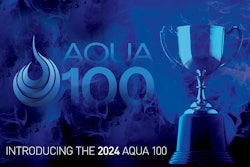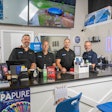Privately labeled products have long been a helpful tool for pool and spa retailers. First, name-brand alternatives are often cheaper, which make them appealing to price-focused consumers. Second, and more importantly, they provide a clear reason for customers to return to your store: “You can’t get this anywhere else.”
According to Retail Dive, a news outlet for the retail industry, private labeling is taking off — particularly among large chains trying to compete with Amazon, which has nearly 70 private labels of its own.
Macy's is just one example. As Retail Dive's Corinne Ruff writes, Macy's executives cited several reasons for the push to private label, including "declining store traffic, increased consumer interest in off price, competitors growing private brands to protect market share," and "‘retailization’ — or more direct-to-consumer businesses.”
Private labels can revitalize a business. However, as Teresa Rivas writes in Barron's, the rise of private labels can potentially oversaturate the market:
"First, retailers create exclusive brands to grow their value options; then private-label brands grow and seem successful, due to positive traffic from national brands. However, over-penetration becomes evident and sales begin to slow, due to a lack of innovation. At that point, retailers begin to scale back on private labels and grow national brands to drive traffic. The final step is for retailers to focus on a small number of private label brands with specific products."
Large-scale retail chains and specialty retailers are in the same boat: doing whatever it takes to carve a niche Amazon can't fill.








































